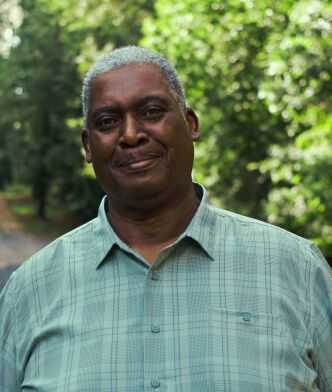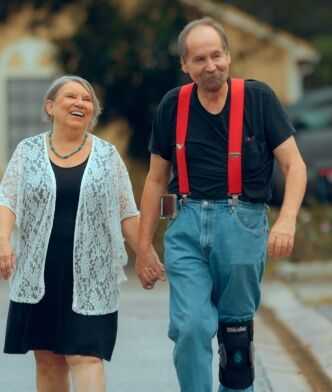Amusement Park Injury Attorney
Amusement Park Injury Attorney
- The Fee Is Free Unless You Win®.
- America's Largest Injury Law Firm™
- Protecting Families Since 1988
- 20 Billion+ Won
- 1,000+ Lawyers Nationwide
Free Case Evaluation
Porter Ranch Gas Leak
Jacob T. Rodgers v. City of Gainesville D/B/A Gainesville Regional Utilities
Estate of Frank Townsend v. RJ Reynolds, et al.
Morgan Stanley Data Security Litigation
Stephen Davis v. Levon Clark, Ricardo Williams, Marty Grifka and Derek Pak
McAdams v. Monier Lifetile, LLC
Coleman v. Martinez
Gold v. Lumber Liquidators
Clemmons, Patrick
Brink v. Ruiz

The attorneys featured above are licensed in Florida. For a full list of attorneys in your state please visit our attorney page.
Amusement Park Injury Attorney
With more than 400 amusement parks nationwide, the United States is considered the amusement park capital of the world. In 2019, the 20 busiest amusement parks in the United States welcomed more than 160 million visitors from all over the world. Amusement parks attract visitors from just about every demographic because of the universal appeal generated by thrill-seeking rides and highly entertaining attractions. However, amusement parks present one significant problem.
They can be dangerous venues for a wide variety of reasons.
It starts in the parking lot where a car accident awaits, from a minor fender bender to a serious side-impact crash. Pedestrians run the risk of getting hit due to the high volume of cars that move about with little, if any, traffic restrictions. Once you find your way into an amusement park, your vehicle sits highly vulnerable to an act of theft caused by negligent security. Inside an amusement park, you can sustain one or more injuries as the result of a defective ride or the inexperience of a ride’s operator. You might even slip and fall while walking briskly to the next exciting attraction.
If you sustained one or more injuries as the result of a personal injury incident at an amusement park, you should contact an experienced amusement park injury attorney to determine your legal options. An experienced personal injury lawyer who specializes in handling amusement park cases conducts a comprehensive investigation that includes interviewing witnesses, gathering physical evidence, and reviewing the official incident report. If your amusement park injury attorney discovers the venue committed one or more acts of negligence, you receive legal support in preparation for a civil trial overseen by a judge or jury.
For more than three decades, Morgan and Morgan has represented clients for every type of personal injury case. Since 1988, our personal injury lawyers have recovered more than $20 billion in compensation for our clients, with a percentage of the compensation coming from favorable legal judgments awarded for amusement park cases. Because litigating amusement park cases can be difficult due to the often unclear nature of assigning fault, you want the most experienced team of personal injury lawyers on your side when the time comes to file a civil lawsuit that seeks monetary damages.
Schedule a free case evaluation today with an amusement park injury attorney from Morgan and Morgan.
Get answers to commonly asked questions about our legal services and learn how we may assist you with your case.
Morgan & Morgan
What Are the Government Regulations for Amusement Park Rides?
The difficulty associated with litigating amusement park injury cases starts with the question, “Which government agency regulates amusement park operations?” Answering the question requires determining whether an amusement park is defined as a mobile or fixed site. Fixed-site amusement parks, such as all Disney theme parks, represent fixed-site venues because they remain in the same location year-round. On the other hand, mobile amusement parks, such as the one you visit at state fairs and county carnivals, stay at one location for just a few days before moving on to the next location.
The Consumer Product Safety Commission (CPSM) is the federal government agency responsible for regulating mobile amusement parks, but the CPSC has no legal power to regulate fixed sites. The regulation exclusion granted to fixed-site amusement parks has earned the nickname “Roller Coaster Loophole.” More than half of the states enforce regulations of fixed-site amusement parks, while the remaining states rely on insurance companies or third-party inspectors to enforce compliance with safety standards.
What Are the Common Causes of Amusement Park Accidents?
According to data compiled by the CPSC, by far the most amusement park accidents occur as the result of an issue associated with a ride. However, there is one exception to the amusement park ride rule.
Improper Operation
Amusement parks represent popular employers for seasonal workers, such as students looking to earn extra money during the summer hiatus from school. Although amusement parks fill their many job openings with young workers, assigning an inexperienced employee to monitor the safety of a ride can lead to trouble.
The improper operation of a ride can include not noticing potential risks and not following the correct procedure for creating enough distance between two moving vessels.
Mechanical Failure
Amusement parks employ maintenance professionals that have the responsibility to ensure the safety of all rides. Daily inspections uncover possible risks to prevent the operation of a defective track or moving vessel. For example, If a lap bar detaches on a roller coaster car, the momentum of the roller coaster can toss a passenger from the car.
A mechanical failure can also be the result of a faulty design or construction flaw committed by the ride’s manufacturer.
Visitor Failure to Follow Safety Instructions
Visitors to amusement parks know about the signs that read, “You have to be this tall to get on this ride.” This is one of many safety instructions that typically greet visitors before they get in line for a ride. One of the most effective defenses that the attorneys representing amusement parks use concerns blaming an accident on the plaintiff’s disregard for following a ride’s safety instructions.
Slip and Fall
From the moisture left behind by a water show to grease tracked into a food court by an employee, slip and fall incidents represent one of the most common types of accidents at amusement parks. Most amusement parks assign a team of workers to clean up spills throughout a venue, but the sheer volume of calls makes it difficult for workers to keep up with demand for their services.
How Can an Amusement Park Injury Attorney Help Me?
An amusement park injury attorney provides several types of legal support, starting with determining the cause of your injury or injuries. From there, your lawyer follows a series of steps to help you build a strong enough case to receive just compensation to recover financial losses.
Receive a Copy of the Official Incident Report
Every amusement park follows a process after a personal injury incident that includes completing a detailed incident report. Although you have the right to receive a copy of the report, the venue where you sustained your injuries might not act with the appropriate sense of urgency to honor your request. By hiring an experienced amusement park injury attorney from Morgan and Morgan, you receive a copy of the official incident report in a timely manner.
Gather Physical Evidence
The official incident report represents just one piece of evidence that helps your amusement park injury attorney build a persuasive case. You also have to collect and organize physical evidence, which should include any footage captured by the venue’s security camera system. The judge hearing your case and the insurance company processing your claim also want to review the copies of your medical records. Your lawyer submits copies of diagnostic tests, as well as detailed descriptions of treatment programs and physical therapy sessions.
Calculate a Fair Value for Compensation
Submitting an unreasonable value for monetary damages is one of the most common reasons why judges and insurance adjusters deny requests for compensation. Your amusement park injury attorney calculates a fair value for compensation by adding up all the tangible costs associated with your case, such as the value of lost wages and medical bills. Then, your lawyer calculates a fair value for non-economic damages, such as the costs associated with emotional distress issues. Getting injured as the result of a defective ride can leave emotional scars for years to come.
Your attorney calculates a fair value for non-economic damages by using a formula that factors in the value of economic damages.
Negotiate a Settlement
Negotiating a settlement with an insurance adjuster helps you avoid the appeals process. If your amusement park injury attorney negotiates a settlement with the other party’s lawyer, you avoid the costly and time-consuming litigation process.
Negotiations start when your amusement park injury attorney submits an initial offer, which the other party can either accept or reject. If the other party rejects the initial offer submitted by your lawyer, you might receive a counteroffer or a formal letter demanding the end of negotiations. Several rounds of counteroffers can follow the initial offer until both sides reach an agreement or decide to move forward to the next step of the process.
Prove Negligence
Proving negligence is the key to winning a civil lawsuit that seeks monetary damages, but your amusement park injury attorney must demonstrate the presence of four legal elements. First, your lawyer must establish that the other party owed you a duty of care to prevent you from sustaining one or more injuries. Second, you must demonstrate the other party breached the duty of care doctrine. The third element of proving negligence requires your attorney to show a link between the amusement park accident and the sustaining of your injuries. Finally, your injuries must have generated financial losses.
What Is the Deadline for Filing an Amusement Park Lawsuit?
As a type of personal injury case, you must follow the statutes of limitations established by your state for filing personal injury lawsuits. Most states have established deadlines for filing personal injury lawsuits between two and four years. However, you might live in a state that has set a statute of limitations as long as six years or as short as one year. The clock starts ticking for your lawsuit on the day when you sustained injuries as the result of amusement park negligence. You might receive an extension if you can show the court you sustained one or more injuries that developed delayed symptoms, as often is the case with conditions like whiplash and concussions.
Although you have plenty of time to take legal action, you should act quickly for two important reasons. First, your amusement park injury attorney needs to speak with witnesses shortly after the incident. Witness accounts tend to be much more reliable the closer they are given to the date of an amusement park accident. Second, you might find yourself in a deep financial hole if you do not take swift legal action. Unless your healthcare providers agree to a medical lien arrangement, you must pay your medical bills when they come due.
If you fail to meet the deadline for filing a personal injury lawsuit, you can expect the court clerk processing your case to dismiss it.
To learn more about how an amusement park injury attorney can help, schedule a free case evaluation with Morgan and Morgan.
How it works
It's easy to get started.
The Fee Is Free Unless You Win®.
Results may vary depending on your particular facts and legal circumstances.
Step 1
Submit
your claimWith a free case evaluation, submitting your case is easy with Morgan & Morgan.
Step 2
We take
actionOur dedicated team gets to work investigating your claim.
Step 3
We fight
for youIf we take on the case, our team fights to get you the results you deserve.






